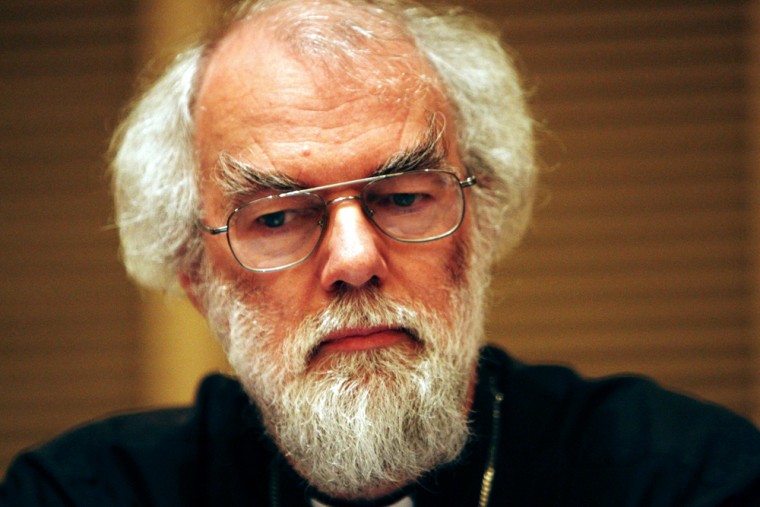The archbishop of Canterbury said Friday he never proposed the creation of a parallel Islamic legal system in Britain, as anger continued to simmer over statements he made seen as backing Islamic law.
Rowan Williams told the British Broadcasting Corp. in an interview aired Thursday that some aspects of Shariah law, a venerable Islamic code of conduct, already fit easily within the existing British legal system, and he agreed when asked if its implementation was inevitable.
Britain's media took the statement as broadly backing Shariah law, which delighted some British Muslims — and outraged almost everyone else.
Lawmakers across the political spectrum condemned Williams' statement, and Britain's tabloid newspapers reacted with fury, publishing pictures of people being beheaded under Shariah law and showing the carnage after Islamic suicide bombers attacked London's transport system in 2005.
In an editorial, The Sun newspaper called Williams "a dangerous threat to our nation" and said Muslim terrorists would "see his foolish ramblings as a sign that our resolve against extremism is weakening."
Williams acknowledged the "strong reaction in the media and elsewhere" but said in a message posted to his Web site he never intended to propose the creation of a parallel Muslim legal system.
Williams: He used Shariah to set example
Williams said his aim was "to tease out some of the broader issues around the rights of religious groups within a secular state" and was using Shariah law as an example.
He explained that Christians could not be expected to claim religious exceptions to secular rules — for example, by refusing to carry out abortions — unless they were willing to accommodate other religious traditions.
The heated reaction prompted some British Muslim groups to soften their initial support for Williams' plans and to complain about "Islamophobia" making British Muslims feel unwelcome in their homeland.
"The reaction has escalated into hysteria," said Catherine Heseltine, a spokeswoman with the Muslim Public Affairs Committee UK. "People hear the word Shariah and have an emotive conjuring of Taliban beheadings. It's seen as threatening Muslim outsiders coming in and imposing something on Britain."
In reality, she said, the changes Williams is advocating are not a high priority to British Muslims. For most Muslims here, she said, Shariah law deals primarily with questions of how Halal meat should be prepared and how marriages should be conducted.
Shariah is a wide-ranging Islamic code that has evolved over the centuries and is subject to differing interpretations in various countries. It deals with many aspects of daily life, including dress and dietary restrictions, and also codifies how to punish serious offenses.
The code imposes some restrictions on banking practices and in fact some British banks have introduced Shariah-compliant programs for certain types of transactions.
There are already some Shariah councils operating in Britain for Muslims who agree to abide by their rulings, but these are unofficial bodies not recognized by British law.
